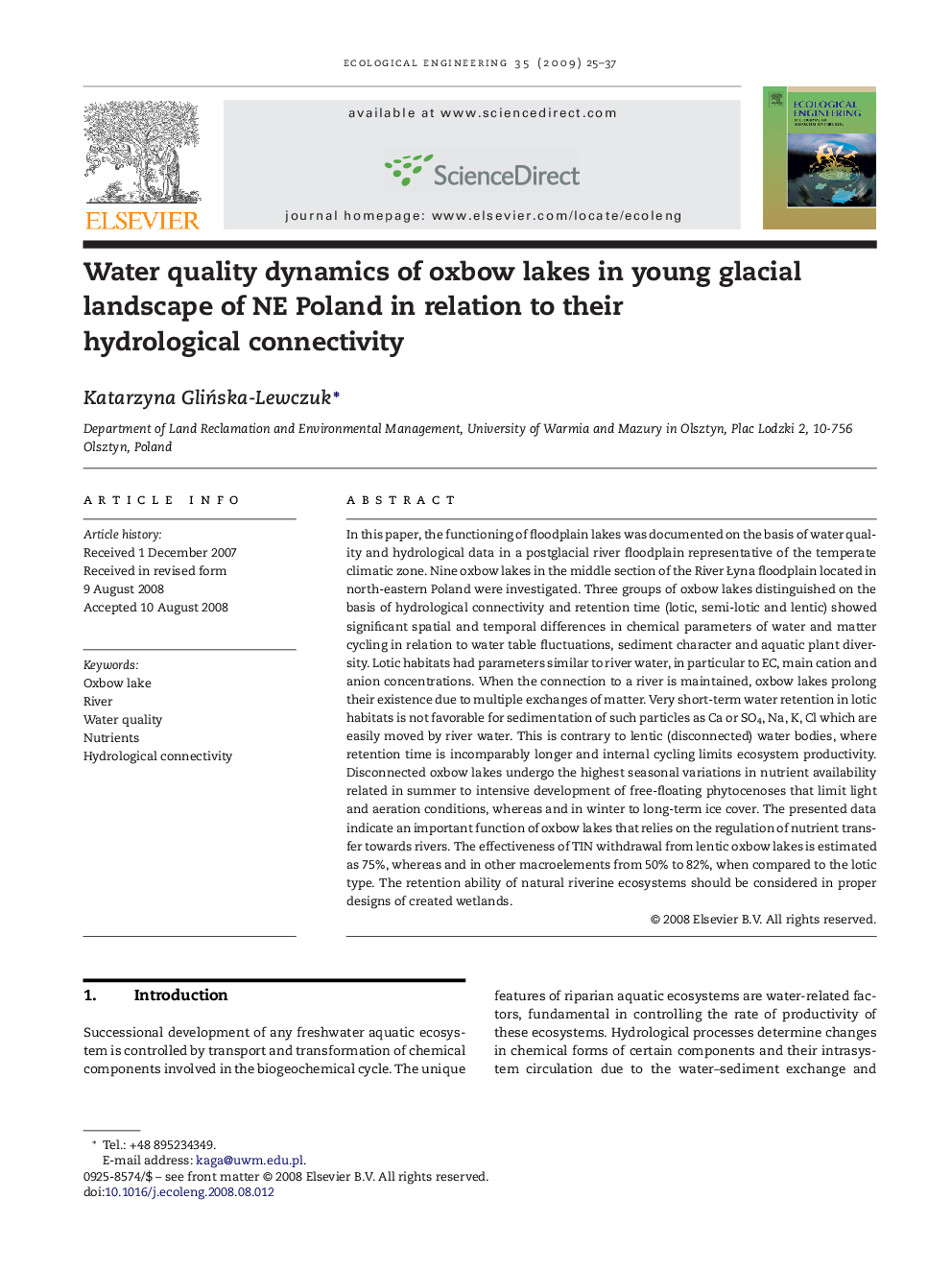| Article ID | Journal | Published Year | Pages | File Type |
|---|---|---|---|---|
| 4390658 | Ecological Engineering | 2009 | 13 Pages |
In this paper, the functioning of floodplain lakes was documented on the basis of water quality and hydrological data in a postglacial river floodplain representative of the temperate climatic zone. Nine oxbow lakes in the middle section of the River Łyna floodplain located in north-eastern Poland were investigated. Three groups of oxbow lakes distinguished on the basis of hydrological connectivity and retention time (lotic, semi-lotic and lentic) showed significant spatial and temporal differences in chemical parameters of water and matter cycling in relation to water table fluctuations, sediment character and aquatic plant diversity. Lotic habitats had parameters similar to river water, in particular to EC, main cation and anion concentrations. When the connection to a river is maintained, oxbow lakes prolong their existence due to multiple exchanges of matter. Very short-term water retention in lotic habitats is not favorable for sedimentation of such particles as Ca or SO4, Na, K, Cl which are easily moved by river water. This is contrary to lentic (disconnected) water bodies, where retention time is incomparably longer and internal cycling limits ecosystem productivity. Disconnected oxbow lakes undergo the highest seasonal variations in nutrient availability related in summer to intensive development of free-floating phytocenoses that limit light and aeration conditions, whereas and in winter to long-term ice cover. The presented data indicate an important function of oxbow lakes that relies on the regulation of nutrient transfer towards rivers. The effectiveness of TIN withdrawal from lentic oxbow lakes is estimated as 75%, whereas and in other macroelements from 50% to 82%, when compared to the lotic type. The retention ability of natural riverine ecosystems should be considered in proper designs of created wetlands.
